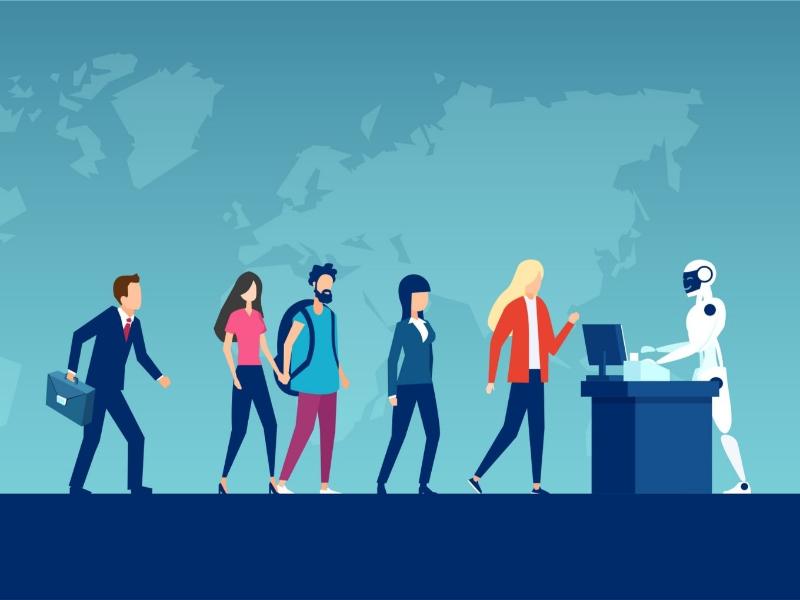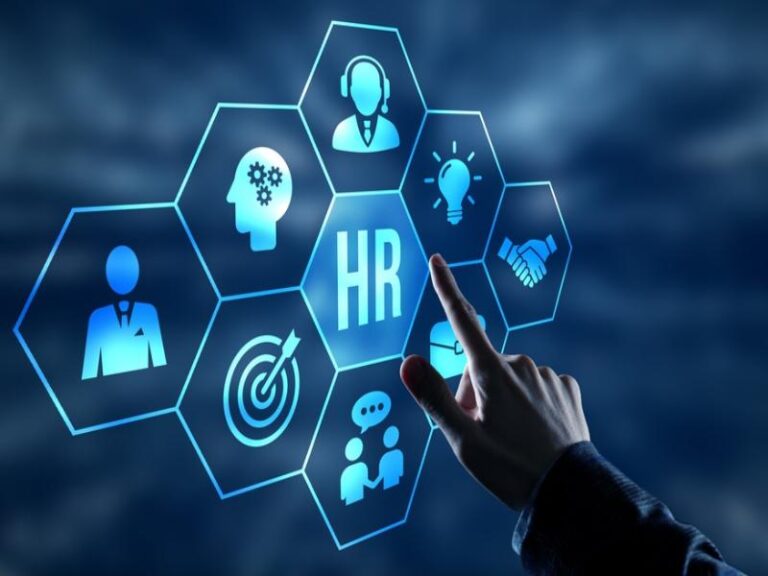AI Tools for HR (Transforming Talent Acquisition)
Explore the cutting-edge AI tools for HR designed to revolutionize talent acquisition. From Applicant Tracking Systems to predictive analytics, discover how artificial intelligence is reshaping HR processes for efficient recruitment, employee engagement, and strategic workforce management.
In the fast-evolving landscape of Human Resources (HR), artificial intelligence (AI) has emerged as a game-changer, revolutionizing the way organizations approach talent acquisition.
AI Tools for HR
The integration and use of AI tools for HR processes has not only streamlined recruitment but has also enhanced decision-making and efficiency.
In this post, we will delve into various AI tools for HR today that are transforming talent acquisition.
1. Applicant Tracking Systems (ATS):
- AI Algorithms for Resume Parsing:
- AI-powered ATS utilizes algorithms to scan and parse resumes, extracting key information such as qualifications, skills, and relevant experience.
- Natural Language Processing (NLP) techniques enable the system to understand the meaning behind words, ensuring a more accurate interpretation of resumes.
- Machine Learning for Candidate Success Prediction:
- ATS employs machine learning algorithms to analyze historical data on successful hires.
- By identifying patterns and correlations in the data, the system can predict the likelihood of a candidate’s success based on their attributes, improving the screening process.
- NLP for Context Analysis:
- NLP capabilities enable the system to understand the context of job descriptions and resumes.
- This ensures a more nuanced understanding of the skills and qualifications required for a position, reducing the likelihood of false positives or negatives in the screening process.
2. Chatbots and Virtual Assistants:
- AI-Driven Chatbots for Candidate Engagement:
- Chatbots engage with candidates in real-time, answering queries and providing information about job openings, company culture, and application procedures.
- Natural Language Understanding (NLU) allows chatbots to comprehend and respond to the diverse language used by candidates.
- Virtual Assistants for Task Automation:
- Virtual assistants automate routine tasks, such as scheduling interviews, sending follow-up emails, and providing status updates to candidates.
- By handling mundane tasks, virtual assistants free up HR professionals to focus on strategic aspects of talent acquisition.
3. Predictive Analytics:
- Analysis of Historical and Current Data:
- Predictive analytics tools in HR leverage AI to analyze a wealth of historical and current data related to recruitment and workforce trends.
- This data may include candidate profiles, hiring timelines, and performance metrics, providing a comprehensive view of past hiring processes.
- Data-Driven Decision-Making:
- By identifying patterns and correlations in the data, HR professionals can make more informed, data-driven decisions.
- Predictive analytics can forecast future trends in recruitment, helping organizations proactively address challenges and capitalize on opportunities.
4. Video Interviewing and Analysis:
- Facial and Speech Recognition:
- AI-driven video interviewing tools utilize facial and speech recognition to assess candidate responses during video interviews.
- This technology can analyze facial expressions, tone of voice, and speech patterns, providing additional insights into a candidate’s suitability for a role.
- Emotion Analysis for Candidate Evaluation:
- Emotion analysis helps gauge non-verbal cues, such as enthusiasm and confidence, offering a more holistic assessment of a candidate beyond traditional interviews.
- This aids in evaluating a candidate’s cultural fit and interpersonal skills.
5. Employee Referral Tools:
- Internal Data Analysis:
- AI enhances employee referral programs by analyzing internal data to identify potential candidates within the organization.
- The system assesses employees’ skills, experiences, and performance to match them with suitable job openings.
- Algorithmic Matching for Targeted Referrals:
- Employee referral tools use algorithms to match the specific requirements of job openings with the skills and qualifications of potential candidates.
- This targeted approach improves the effectiveness of employee referrals.
6. Diversity and Inclusion Tools:
- Minimizing Bias in Recruitment:
- AI tools play a crucial role in minimizing bias in recruitment processes.
- By analyzing job descriptions and identifying language that may discourage diverse candidates, these tools contribute to creating more inclusive and equitable hiring practices.
- Analyzing and Enhancing Job Postings:
- Tools assess job descriptions to ensure they are inclusive and appeal to a diverse pool of candidates.
- This promotes diversity and inclusion by addressing potential biases in language and requirements.
7. Learning and Development Platforms:
- Skill Assessment through AI:
- AI-powered platforms assess individual employee skills through various means, including quizzes, simulations, and real-time performance data.
- This data helps create a comprehensive profile of employee competencies.
- Adaptive Learning Algorithms:
- Adaptive learning algorithms tailor training content to meet the specific needs and learning styles of employees.
- This personalized approach enhances the effectiveness of training programs by addressing individual learning gaps.
8. Retention Predictors:
- Analysis of Employee Data:
- AI tools analyze various factors such as job satisfaction, work-life balance, and professional growth from employee data.
- This comprehensive analysis provides insights into the factors influencing employee retention.
- Proactive Measures for Retention:
- By predicting potential retention issues, HR professionals can take proactive measures to address concerns and enhance overall workforce stability.
- This may involve targeted interventions, personalized development plans, or improvements in work conditions.
In conclusion, the use of these AI tools for HR processes enhances the efficiency, accuracy, and strategic impact of talent acquisition, marking a significant shift in how organizations approach human resource management.
Tech Tools for HR Professionals (Streamlining Talent Management)
Key Takeaways (AI Tools for HR)
- AI algorithms in Applicant Tracking Systems identify key qualifications in resumes.
- Chatbots engage candidates instantly, aiding in queries and application processes.
- Predictive analytics leverages AI to forecast recruitment trends and workforce needs.
- Video interviewing tools use facial and speech recognition for candidate assessment.
- Employee referral tools utilize AI to analyze internal data and match skills with job requirements.
- Diversity and inclusion tools minimize bias in recruitment processes and job postings.
- Learning platforms powered by AI assess individual employee skills and offer personalized training.
- AI-driven retention predictors analyze factors like job satisfaction for proactive measures.




One Comment